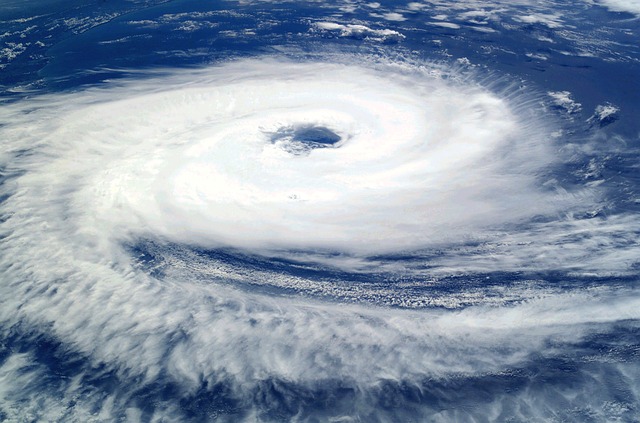
What Survivor’s Guilt Really Feels Like: Lessons From Typhoon Tino
Survivor’s guilt is a quiet, complicated feeling that many people experience after a disaster, yet very few talk about it. When Typhoon Tino (International Name: Kalmaegi) reached Cebu a little past four in the morning on November 4, 2025, I learned firsthand what it feels like to be safe while people you care about are struggling. If you have ever come out of a crisis mostly unharmed and wondered why you were spared, my experience may feel familiar.
That morning, I was already awake. I knew it would rain heavily, but I was not overly worried. The forecasts did not sound anything like Typhoon Odette in 2021, one of the strongest and most destructive storms to hit the Philippines in recent years. By five, the power went out. Around six, our mobile signal disappeared. By nine, even our water supply had stopped.
The quiet that followed brought back the same uneasy stillness we felt during Odette. That storm, known internationally as Super Typhoon Rai, passed directly over Cebu and left the province in ruins. For weeks, the city looked like a post-apocalyptic scene. My husband and I lined up for hours just to withdraw cash, buy food and clean drinking water, and get gasoline. We lived without electricity for more than three weeks and spent Christmas and New Year in the dark.
When the rain finally slowed down, I stepped outside expecting to see some damage. Instead, our area looked relatively unscathed. A few leaves, a neighbor’s roof flapping in the wind, a thin layer of flood water on the street, nothing more. I felt relieved. For a moment, I thought maybe Tino had passed without causing the serious floods people were worried about.
When the Messages Started Coming In
A member of our yoga group was pleading for rescue because the water rose so quickly they had to climb onto their rooftop. They stayed there for hours, watching the flood swallow their home one floor at a time. At one point, they sent a photo of someone lying on a nearby rooftop while another person tried to revive him. We later learned he did not survive. It was terrifying to see things unfold from afar.
Co-workers, both current and former, were also messaging to say their entire neighborhoods were submerged and their roads had become fast-moving rivers. Neighbors shared videos from nearby areas showing cars drifting in brown floodwater and rooms filling with mud and debris. The first level of a shopping mall was submerged in floodwater too. The contrast between my quiet street and the devastation they were facing was overwhelming.
That was when the survivor’s guilt hit me.
Why were we safe while people I cared about were fighting to survive?
Why was I dry and connected while others were stranded on rooftops?
What survivor’s guilt means in moments like this
Survivor’s guilt is the heavy, uneasy feeling that comes when you make it through a crisis mostly unharmed while others suffer deeply. It is the emotional conflict between relief for your own safety and sadness or guilt for what others are facing. In the context of Typhoon Tino, it meant waking up to a dry home and working power stations while friends were watching their houses disappear underwater. It is not a sign that you did something wrong. It simply shows that your heart is responding to the contrast between your experience and someone else’s pain.
I donated what I could. I checked on friends, shared rescue numbers and updates. But a small voice inside still said it was not enough, not compared to the fear and loss they were experiencing. It is a strange and heavy thing to carry relief and grief at the same time.
If you have ever felt this way after a disaster, you are not alone. Survivor’s guilt is something many people feel but rarely talk about. It comes from empathy. It comes from caring.
Here are a few things that have helped me cope:
1. Say the feeling out loud
Admitting, “I feel guilty for being safe,” can bring clarity and soften the heaviness.
2. Focus on what you can truly give
You do not have to fix everything. Your small, sincere actions still matter.
3. Allow yourself to feel grateful
Being thankful for your safety does not mean you are ignoring someone else’s suffering. Gratitude and compassion can exist together.
4. Stay connected
Check in on people. Listen. Offer help when you can. Presence itself can be healing.
5. Remember that help does not need to be grand
There is no perfect amount of giving. What you can offer today is enough.
Weeks after, I am still learning how to hold all these emotions. Relief, sadness, worry, and gratitude come in waves, and I am trying to accept that this mix is part of processing something so unexpected.
If you want to support families affected by Typhoon Tino or help with ongoing recovery efforts, here are two organizations I trust:
Angat Buhay
Donation link: https://angatbuhay.ph (select “Myriad USA” for details)
Philippine Red Cross
Donation link: https://redcross.org.ph/ (Scroll down to “International Donation”)
Whether you donate, volunteer, or send a message to someone who is struggling, your kindness matters. And if you are carrying your own version of survivor’s guilt, I hope you offer yourself the same gentleness you offer to others.

 : Pam Baricuatro – The People’s Governor/Facebook
: Pam Baricuatro – The People’s Governor/Facebook